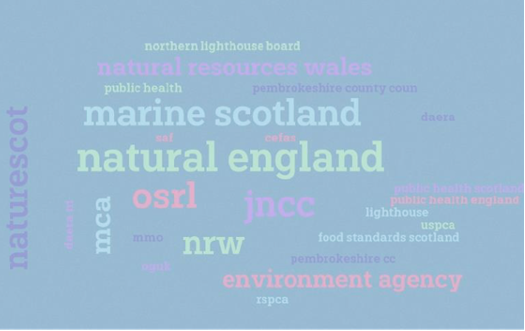
Sea Alarm delivers expert session at online UK Oiled Wildlife Response Workshop
Three Sea Alarm staff participated in a workshop organised by Oil Spill Response Limited (OSRL) and the UK Maritime and Coastguard Agency (MCA), to explore and exercise various elements of oil spill preparedness and response.
The workshop was organised as part of a series of annual events run by OSRL and the MCA on a variety of oil spill response topics, after oiled wildlife response was highlighted at the 2018 event as an area that would benefit from more discussion. This was also a follow-up of an earlier workshop organised in 2014, jointly organised by Sea Alarm, which provided an initial exploration of national UK oiled wildlife response.
The online event was run over three half days, with the third day being dedicated specifically to oiled wildlife response. Day 3 was attended by approximately 60 stakeholders from UK oil and gas operators, governmental agencies, scientific institutions, NGOs and other organisations involved in UK oil spill preparedness.
A central topic in the workshop was to start developing a multi-stakeholder cooperation in implementation of a new Scientific, Technical and Operational (STOp) Note for oiled wildlife response, developed by the MCA. A number of key stakeholders also gave brief presentations on their activities and roles during an oiled wildlife incident.
Sea Alarm assisted MCA and OSRL in developing the programme for the event, and on the day delivered three presentations:
- OSRL-Sea Alarm cooperation
- Building preparedness in the Netherlands
- The 2018 Bow Jubail wildlife response.
The presentations inspired a workshop discussion in which participants stressed the importance of more structural cooperation between lead parties in the UK, including MCA, Local Authorities and specialist NGOs. Important gaps in the UK preparedness for wildlife incidents were identified, such as in Shetland (a remote area), but also a lack of training and experience in some organisations.
The importance of developing a programme of regular multi-disciplinary exercises in different parts of the country, as a first target in implementing the STOp Note, was an important conclusion from the meeting.
Photo: Participants at the UK Wildlife Workshop (source: OSRL)
